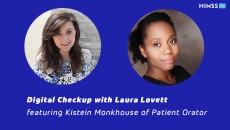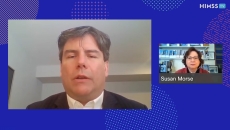Videos
Patient engagement technology is helping the 72-practice Community Care Physicians medical group improve its no-show rate, send COVID-related newsletters to patients and remind them of their telehealth appointments during the pandemic.
In this HIMSS TV Deep Dive, we show how health systems are leveraging advanced technologies such as AI, analytics and telehealth to manage patient populations while still staying focused on the basic building blocks of health and wellness.
Patient Orator founder and CEO Kistein Monkhouse discusses the long history of racial inequalities in healthcare, and how technology can pinpoint those with the highest risk.
In this episode of The Alessi Agenda, Sinikka Salo, senior medical officer at the Regional State Administrative Agencies in Finland, explains how Finnish citizens are empowered to use their health data effectively.
There will be a new way of living in a post-coronavirus world – but digital tools, including apps and telehealth, can play a significant role as we continue to fight COVID-19.
Scripps Translational Science Institute Epidemiologist Jennifer M. Radin discusses how data from wearables such as Fitbits can be used to track influenza-like illnesses, including COVID-19.
The pandemic's long-term impact on acute and post-acute care will be more detailed documentation and a greater emphasis on event notification services to track care progression, explains Brightree VP Nick Knowlton.
Deep Dive: By integrating social factors, genomics and medical histories, clinicians are better able to treat patients.
A team at MIT creates a program that searches for ideas to fight COVID-19 via hackathons and virtual events.









